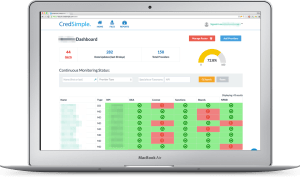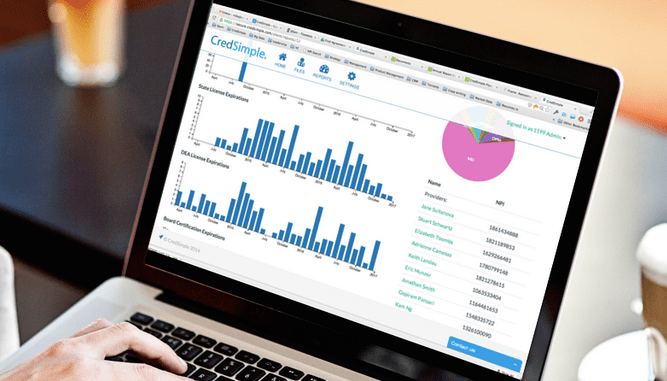CredSimple, a startup building a medical credentialing database, has raised $1.5 million in seed funding to help healthcare and insurance companies manage their doctor networks. Bowery Capital led the round, with participation from Primary Venture Partners and a handful of angels.
When a doctor gets a job at a new practice or hospital, he goes through a process called credentialing. It generally takes three months to complete, according to CredSimple founder Mike Simmons, during which the doctor can’t see patients or perform surgery.
To credential a doctor, the hospital and the insurance providers it works with each carry out their own lengthy background checks to confirm that the doctor is qualified.
“There are a lot of moving parts that relate to compliance, and because it’s all manual, there’s a high rate of error in the data,” says Simmons. “The intake form for healthcare providers is 100 pages of photocopied documents that need to be filled out by hand and FedEx-ed back to the hospital, and invariably there’s a date that’s not completed somewhere.”
By bringing the entire process online and partnering with medical boards, CredSimple has been able to cut the three-month verification process down to a couple of weeks, depending on how quickly things move on the doctor’s end.
Once the doctor fills out the online intake form, CredSimple verifies each piece of information against a primary source, whether that’s a medical licensing board, a drug enforcement agency, or an educational institution.
“There aren’t APIs set up for each medical board, so it’s not like we can create a nice JSON request that says, ‘Give me Dr. Smith’s start date,’” Simmons says. “It’s a complicated process to acquire the information, but once we set it up, we can pull information from these sources on a monthly basis.”
CredSimple then shares the results with the hospital and insurance providers, so they can approve the doctor immediately.
The company is currently working with 10 healthcare providers and payers, including Oscar, and managing credentials for doctors in nearly every state.
“Across the board, the healthcare industry struggles with providing accurate information about their provider network to their customers,” says Simmons. “By helping payers and providers interact more efficiently, patients ultimately get better care.”
